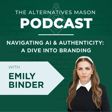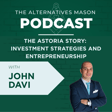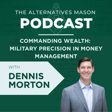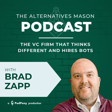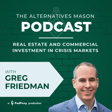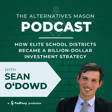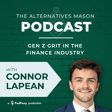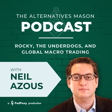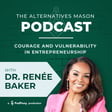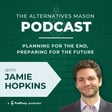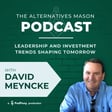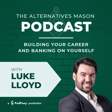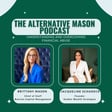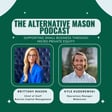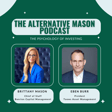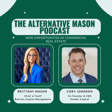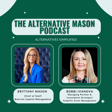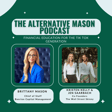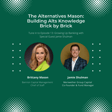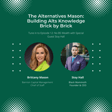
The Alternatives Mason: Building Alts Knowledge Brick by Brick | Episode 6 | Breaking Down Barriers featuring Kelly Ann Winget
Welcome to The Alternatives Mason: Building Alts Knowledge Brick by Brick. Banrion Capital Management uses technology to help independent advisors scale and educate themselves on alternative investments. Since education is such a big piece of the Banrion mission and business, we are excited to kick off this series to dive into the nits and grits of the alternatives space. Episode 6 "Breaking Down Barriers" Features Kelly Ann Winget.
Kelly Ann Winget is the Founder of the Dallas-based private equity company, Alternative Wealth Partners (AWP). Alternative Wealth Partners provides access to digestible information about alternative investments and educates investors about the opportunities available off Wall Street. AWP expertly sources alternative investments that give investors unmatched access to real returns.
Kelly is also the author of "Pitch The Bitch: Grab Your Financial Future By The Bags". Don’t pitch the bitch” is a phrase popularized by the movie Boiler Room (2000), advising stockbrokers not to try to sell to women. Pitch the Bitch walks through the female experience in the investment world, on both sides of the financial transaction. Kelly Ann Winget recounts her journey—from selling car washes as a teenager to her career today as the only millennial, LGBTQ+ manager of a solo-female-founded private equity fund—to help women understand why the investment wealth gap exists and how to close it.
The daughter of a fifth-generation oil and gas family with assets in Louisiana, Oklahoma, and Texas, Kelly Ann has over a decade of experience in the alternative investment space sourcing creative capital for startups, oil and gas companies, manufacturing ventures, real estate, and several other emerging markets on behalf of high net worth/income clients. Over her career, she has successfully raised almost $1 billion in private capital for private placement opportunities. After a decade of building other firm's reputations, she formed AWP in 2020 to offer clients the best of what the private market can offer. Her background and experience allow her to relate easily to a wide range of investors, helping her communicate and manage investors’ goals.
Now, she leverages her own reputation in the industry to get exclusive access to private investments. Kelly Ann offers investors the opportunity to diversify across the board with a single investment through targeted private equity funds, which is for accredited investors who are looking for a diversified portfolio of alternative, tax-advantaged and high-yielding investments. AWP Offers funds that range from completely diversified private equity to tax-advantaged, energy, and real estate funds.
Kelly Ann gives back to the community in areas that have been lifelong interests. As a teen, she competed in the National Forensics League; now she donates her time to the organization, judging local and national tournaments and helping students prepare for competition. In addition, she spearheads fundraisers for children’s causes, particularly health, including Wipe Out Kids’ Cancer. She is also a partner and speaker with Diversity Crew, an organization focused on providing corporate diversity, equity, and inclusion programming while improving bottom-line results.
In her spare time, Kelly Ann enjoys travel, her family, and her two big cuddly dogs. A foodie, she is always on the search for a new creative restaurant.
Learn More about Alternative Wealth Partners (AWP)
Learn More about Kelly Ann Winget
Follow on LinkedIn Kelly Ann Winget
Buy Kelly's Book: Pitch the Bitch: Financial Future by the Bags
Host Brit
